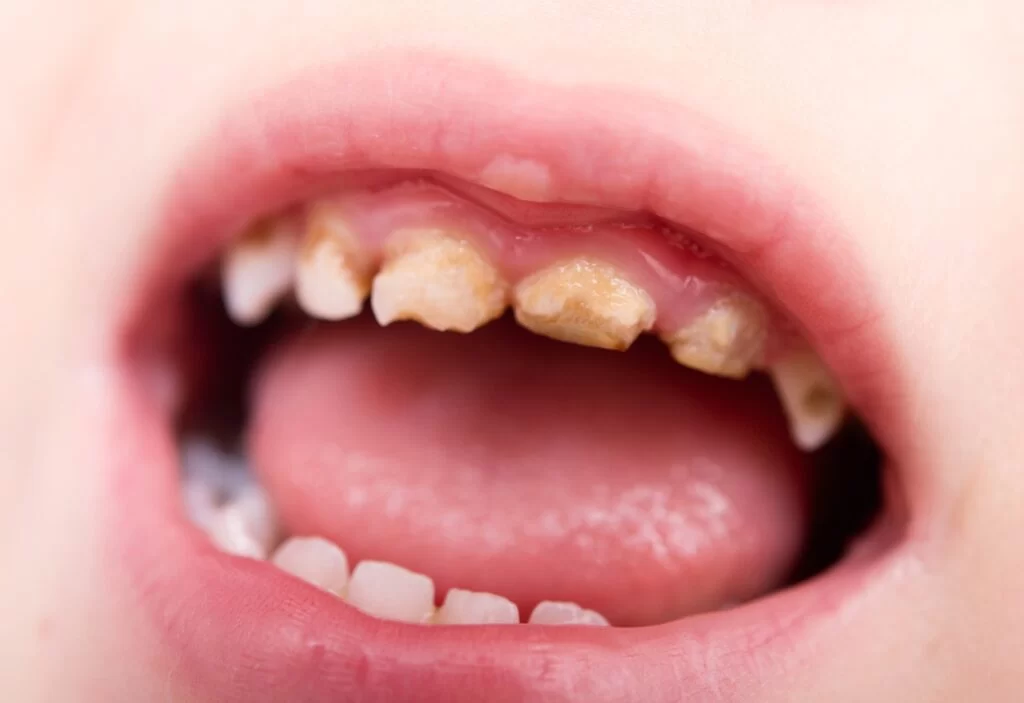
How to Prevent Cavities in Your Toddler’s First Teeth: Essential Tips for Parents
- Why Early Dental Care is Essential for Toddlers
- Best Dental Hygiene Habits for Toddlers
- Dietary Tips to Help Prevent Cavities
- When to Start Visiting the Dentist
1. Why Early Dental Care is Essential for Toddlers
As a parent, it's common to focus on milestones like walking and talking in your toddler's first years, but did you know their dental health is just as important? Cavities in baby teeth are more than just a temporary problem—they can affect speech development, eating habits, and even the alignment of permanent teeth. Preventing cavities in your toddler’s first teeth is essential, and the journey starts early!
The American Academy of Pediatrics recommends starting to care for your baby's gums even before their first tooth emerges. Gently wiping the gums with a soft, damp cloth can help remove bacteria and prepare their mouth for future teeth. As soon as those first teeth appear, it’s time to switch to a soft-bristled toothbrush and introduce fluoride toothpaste. This early care is key to avoiding dental problems down the road.
2. Best Dental Hygiene Habits for Toddlers
Establishing healthy habits early is the best way to prevent cavities in your toddler's first teeth. Here are some simple yet effective tips:
- Brush Twice a Day: Begin brushing your toddler's teeth twice a day with a small, soft-bristled toothbrush. Use a smear of fluoride toothpaste about the size of a grain of rice. At this age, brushing should be supervised to ensure they're cleaning properly.
- Flossing: Once your toddler has two teeth that touch, it’s time to start flossing. It can be tricky at first, but regular flossing helps remove food particles and bacteria from between the teeth, areas that a toothbrush can’t always reach.
- Supervised Brushing: While toddlers are developing their independence, they may not yet have the motor skills to brush effectively on their own. Ensure you are supervising their brushing routine until they are around 6 years old.
Creating a fun, consistent routine can also make dental care an enjoyable experience rather than a chore for both of you. Let your child pick their toothbrush or toothpaste, and try singing a song or setting a timer to make brushing more fun!
3. Dietary Tips to Help Prevent Cavities
What your toddler eats plays a huge role in their oral health. Here are some dietary tips that can help prevent cavities in their baby teeth:
- Limit Sugary Foods and Drinks: Excess sugar leads to plaque buildup, which can eventually cause cavities. Limit sugary snacks like candy, cookies, and sugary drinks. Instead, offer healthy snacks like fruits, vegetables, and cheese.
- Water is Best: Encourage your toddler to drink water throughout the day, especially after meals. Water helps wash away food particles and neutralizes acids that contribute to tooth decay.
- Choose Dairy and Calcium-Rich Foods: Foods like milk, yogurt, and cheese are packed with calcium, which is essential for strong, healthy teeth. A well-balanced diet will support your toddler’s overall dental health and development.
By focusing on a balanced diet, you'll help your toddler develop a love for healthy foods and protect their teeth from harmful decay-causing bacteria.
4. When to Start Visiting the Dentist
It's never too early to start thinking about your toddler’s dental health. The American Dental Association recommends scheduling your toddler’s first dental visit by their first birthday or within six months of the first tooth appearing. Early dental visits can ensure any issues are caught early, as well as provide guidance on how to care for your toddler’s teeth.
Regular dental check-ups can help you establish a positive relationship with the dentist, making future visits much less stressful for your child. A pediatric dentist will give you personalized tips for preventing cavities and other dental issues based on your toddler’s needs.
By following these simple steps—brushing regularly, creating a balanced diet, and scheduling early dentist visits—you can ensure your toddler's first teeth stay strong and healthy. If you're looking for more information on toddler dental care or need expert advice, Dentistry Toothtruth offers resources and recommendations to support your child's dental health journey.
Take charge of your toddler’s dental health today! Explore our collection of dental care tips and products for a cavity-free smile.







 Millennium Park Smiles4.0 (179 review)
Millennium Park Smiles4.0 (179 review) LAKE VISTA DENTISTRY4.0 (207 review)
LAKE VISTA DENTISTRY4.0 (207 review) Duncan Dental5.0 (344 review)
Duncan Dental5.0 (344 review) Quaker City Dental4.0 (134 review)
Quaker City Dental4.0 (134 review) Dr. Robin S. Kozlowski, DDS | Locust Valley Dental Group4.0 (74 review)
Dr. Robin S. Kozlowski, DDS | Locust Valley Dental Group4.0 (74 review) Gulf Coast Dental Center1.0 (6 review)
Gulf Coast Dental Center1.0 (6 review) The Importance of Oral Health Education During Pregnancy for a Healthy Pregnancy
The Importance of Oral Health Education During Pregnancy for a Healthy Pregnancy Best Tips for Brushing Your Teeth Properly for Healthy Gums: Essential Techniques for Oral Health
Best Tips for Brushing Your Teeth Properly for Healthy Gums: Essential Techniques for Oral Health Why Skipping Dental Checkups Can Lead to Bigger Oral Health Problems
Why Skipping Dental Checkups Can Lead to Bigger Oral Health Problems Advantages of Porcelain Dental Restorations
Advantages of Porcelain Dental Restorations How Can Diabetes Cause Tooth and Gum Problems? Preventing and Managing Oral Health Issues
How Can Diabetes Cause Tooth and Gum Problems? Preventing and Managing Oral Health Issues Healthy Habits for Promoting Good Oral Health and Hygiene: Tips for a Healthy Smile
Healthy Habits for Promoting Good Oral Health and Hygiene: Tips for a Healthy Smile